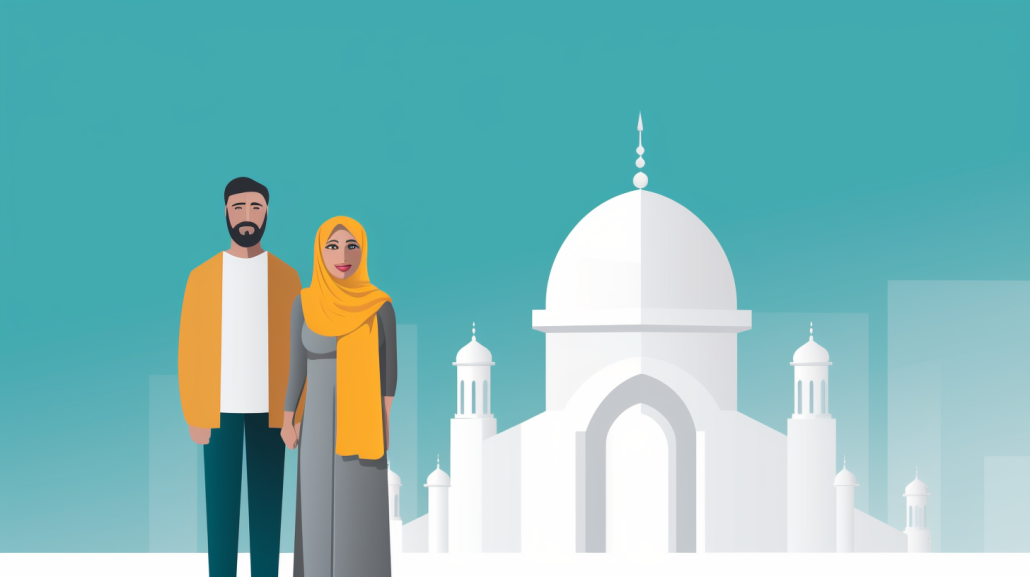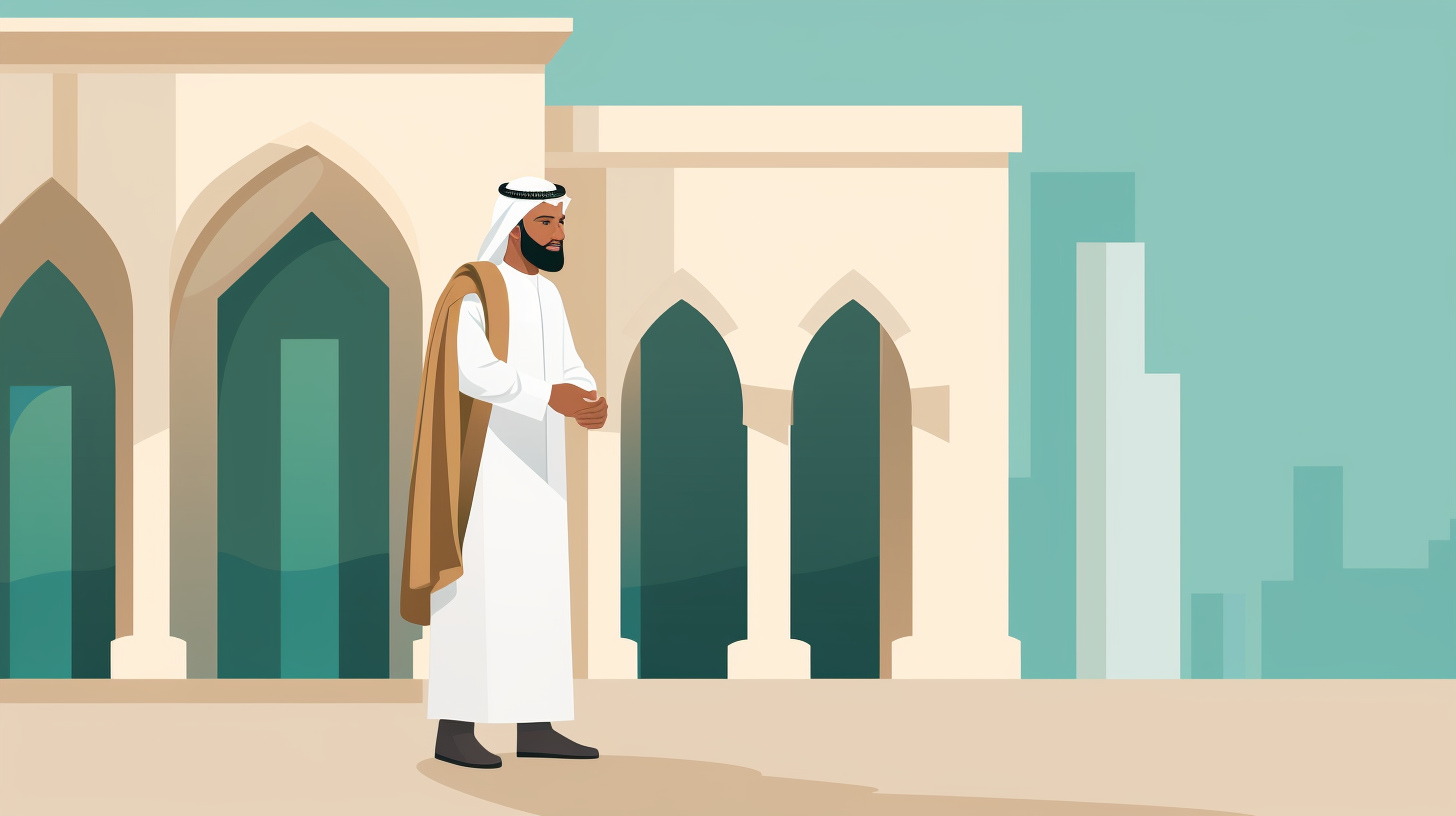Understanding Islamic Banking

Key Takeaways
- Islamic banking follows Shariah law. It does not use interest. Profits and losses are shared.
- The first modern Islamic bank was in Egypt in 1963. Now there are Islamic banks around the world.
- Islamic banking is different from normal banking. Money should be used to help people, not just make more money.
- In an agreement called Mudarabah, two people share profits or losses for a business idea.
- Personal banking in Islamic finance can include loans that do not charge interest but instead work on a profit-share model.
Defining Islamic Banking
Islamic banking is a special kind of banking. It follows Islamic law, also known as Shariah. This system does not take or give interest because it is against the rules of Islam. In fact, two key ideas make Islamic banking different; no interest and sharing both profit and loss. How do these banks work then? They earn money through something called equity participation. This means that if you invest in an Islamic bank, you share in its wins and losses. Some common banks offer services like this too. They stick to the same laws as true Islamic banks when offering these services. So, they are called “conventional banks with Islamic services.” Whether pure or part-Islamic, all these banks must follow Shariah at all times.The History of Islamic Banking
 Islamic banking is not new. Its roots go back to the early days of Islam. But it mostly stayed within Muslim lands until the mid-20th century. After oil prices went up in the 1970s, many Muslim countries had more money. They wanted banks that would follow their faith’s rules. This led to a rapid rise of Islamic banks all over the world. The first modern Islamic bank came about in Egypt in 1963, as Mit-Ghamr Savings Bank. The bank did not charge or pay interest, as per Islamic laws but made money using profit-sharing plans with its customers. Iran and Sudan decided to shift totally towards Islamic banking systems during this period too. Pakistan also chose this path but ran both types of banking side by side for some time. Nowadays we can find full-fledged Islamic banks and regular banks offering sharia-compliant services worldwide.
Islamic banking is not new. Its roots go back to the early days of Islam. But it mostly stayed within Muslim lands until the mid-20th century. After oil prices went up in the 1970s, many Muslim countries had more money. They wanted banks that would follow their faith’s rules. This led to a rapid rise of Islamic banks all over the world. The first modern Islamic bank came about in Egypt in 1963, as Mit-Ghamr Savings Bank. The bank did not charge or pay interest, as per Islamic laws but made money using profit-sharing plans with its customers. Iran and Sudan decided to shift totally towards Islamic banking systems during this period too. Pakistan also chose this path but ran both types of banking side by side for some time. Nowadays we can find full-fledged Islamic banks and regular banks offering sharia-compliant services worldwide.Differences Between Conventional and Islamic Banking
The core difference between conventional and Islamic banking lies in how they function; conventional banks work on the concept of borrowing money with interest, whereas Islamic banks operate on an equity participation system. In essence, it’s about redefining concepts of investment and returns based on ethical principles laid out in Islamic law. Intrigued? Continue reading for a deep dive into this fascinating alternative to traditional banking systems.Interest in Islamic Banking
Many people want to know about Islamic banking. It has grown quite a lot in the past few years. From 2015 to 2021, assets in Islamic finance rose from $2.17 trillion to around $4 trillion. This shows a strong interest worldwide! Plus, predictions say it will grow even more by 2026, reaching about $5.9 trillion! There are also many banks and mutual funds that follow Islamic law now. Over 560 banks and nearly 1,900 funds abide by these rules today! People like the fair trade practices of this kind of banking with no surprise fees or hidden costs.Profit and Loss Sharing
Islamic banking works on a unique system. It is called “profit and loss sharing“. Unlike normal banks, Islamic banks don’t use interest rates. Instead, they share the profits and losses from business deals with their clients. Both sides work as partners in this model. So, if a business does not make money, the bank also gets less profit. This fairness makes Islamic banking stand out.Risk and Reward Sharing
In Islamic banking, we share risk and reward. This is very different from conventional banks. It means that both the bank and the customer split any profits or losses from a business deal. If a project does well, both gain. If it fails, both feel the loss. This makes Islamic finance more fair than other types of banking because no one person takes all the risk or gets all the win. By following this rule of equity participation, Islamic banks stay true to Shariah law and its ban on interest collection and payment.The Basis of Islamic Banking
 Islamic banking revolves around principles derived from the Quran and Hadith, prohibiting usury or interest (Riba), uncertainty or deception (Gharar) and activities deemed unethical. Money in Islam is not a commodity but a medium of exchange, making earning interest on loans unacceptable. Instead, Islamic banks employ profit and loss sharing systems like Mudarabah, focusing on equity participation rather than debt creation. This unique approach to finance reflects an emphasis on risk-sharing, ethical investing and prevention of economic bubbles often experienced in conventional systems.
Islamic banking revolves around principles derived from the Quran and Hadith, prohibiting usury or interest (Riba), uncertainty or deception (Gharar) and activities deemed unethical. Money in Islam is not a commodity but a medium of exchange, making earning interest on loans unacceptable. Instead, Islamic banks employ profit and loss sharing systems like Mudarabah, focusing on equity participation rather than debt creation. This unique approach to finance reflects an emphasis on risk-sharing, ethical investing and prevention of economic bubbles often experienced in conventional systems.Prohibition in Financial Transactions
Islamic banking says ‘no’ to some things in money deals. Interest on loans, or “usury”, is a big no-no. Speculation, which means guessing to make a quick profit, is also banned. I can’t put my money into anything that goes against Islamic law either. This includes businesses linked with alcohol, gambling or pork. We call these rules prohibition in financial transactions. It makes sure everyone gets fair treatment and follows the right path in finance matters. No one should feel cheated or trapped by unfair loan terms! So this rule helps keep everything clean and just for all.Perception of Money in Islamic Finance
In Islamic finance, money has a unique role. It’s not an asset but a means to trade. Earning more money from the cash you have is not allowed by Islamic law. This is called “riba” or usury and it’s seen as unfair gain. Therefore, if I lend money in the world of Islamic banking, I can’t charge interest or earn extra cash just because of the loan itself. Money must be used for real things like assets, goods, or services that help people in their lives or work towards community goals.Time Value in Islamic Financial System
In the Islamic financial system, money does not grow with time. This is different from other banks where you can earn interest over time. For Islamic banks, money itself has no value. It should be used to make things better or help people. The Quran says that making profit by just waiting for time to pass is not allowed. Instead, one should work hard and take risks for their earnings. Money must be actively used in a fair way that helps everyone involved. This principle guides all decisions in Islamic banking and finance.How Do Islamic Banks Make Money?
 Islamic banks generate profits in a distinct way, adhering to the principles of Islamic law, through mechanisms including profit and loss sharing contracts like Mudarabah, declining balance shared equity agreements, installment sales or Murabaha, and leasing plans known as Ijarah.
Islamic banks generate profits in a distinct way, adhering to the principles of Islamic law, through mechanisms including profit and loss sharing contracts like Mudarabah, declining balance shared equity agreements, installment sales or Murabaha, and leasing plans known as Ijarah.Profit and Loss Sharing Contracts (Mudarabah)
Mudarabah is a big part of Islamic banking. It’s a way to share profits and losses. Two people make a deal to work together in this way. One person gives the money, and they are called the “Rabb ul Mal”. The other works with those funds. This person is known as the “Mudarib”.- The Rabb ul Mal gives money but does not need to be involved in the business.
- The Mudarib uses those funds for business ideas.
- Both Rabb ul Mal and Mudarib agree on how they’ll share any profit.
- If there is no profit, the Rabb ul Mal loses his investment, and the Mudarib gets nothing for his effort.
- If there is loss, only the Rabb ul Mal bears it.
Declining Balance Shared Equity
Declining balance shared equity is a smart way Islamic banks make money. Here’s how it works. Instead of charging interest, the bank and the borrower share ownership of an asset. Over time, the borrower buys out the bank’s part bit by bit. Each payment lowers what they owe and raises their share in the asset. The more they pay back, the less is left for them to buy from the bank. This is why it’s called “declining balance.” It makes sure no one pays or gets paid interest. This ties into Islamic law that says collecting interest isn’t right.Installment Sale (Murabaha)
Let’s discuss Installment Sale or Murabaha. It is a smart way for Islamic banks to earn money. Now, here’s how it works:- The bank buys an item needed by a customer.
- Then, the bank sells it to that customer at a higher price.
- This act lets the bank make profit instead of charging interest.
- It is important that this process sticks to Shariah law rules.
- This means no unfair actions can happen during the sale.
- Also, the things sold cannot involve banned items or actions.
- For example, alcohol and pork are not allowed in these sales.
Leasing (Ijarah)
Leasing, also known as Ijarah, is a key part of Islamic banking. Here is how it works:- A customer picks an asset they want to use.
- The Islamic bank buys that asset. They own it.
- The bank lets the customer use the asset.
- The customer pays the bank regularly for using the asset.
- The bank still owns the asset while the customer is using it.
Islamic Banking Products and Services
 Just as in conventional banking, Islamic banks offer a wide array of products and services designed to meet the financial needs of individuals and businesses. Yet these offerings are unique because they comply with Shariah law; this includes personal banking solutions such as savings accounts, credit cards, home financing and auto loans that operate without the use of interest. For businesses, there’s an assortment of investment services grounded in risk-sharing principles like Mudarabah (profit sharing) or Musharakah (joint venture). Then there’s Takaful insurance which is based on the principle of mutual assistance – a way for customers to pool their money together in case one faces unforeseen circumstances. Each product reflects the ethical underpinnings embedded within Islamic finance.
Just as in conventional banking, Islamic banks offer a wide array of products and services designed to meet the financial needs of individuals and businesses. Yet these offerings are unique because they comply with Shariah law; this includes personal banking solutions such as savings accounts, credit cards, home financing and auto loans that operate without the use of interest. For businesses, there’s an assortment of investment services grounded in risk-sharing principles like Mudarabah (profit sharing) or Musharakah (joint venture). Then there’s Takaful insurance which is based on the principle of mutual assistance – a way for customers to pool their money together in case one faces unforeseen circumstances. Each product reflects the ethical underpinnings embedded within Islamic finance.Personal Banking
In Islamic banking, personal banking plays a big part. It offers all the services you can find in regular banks. But it sticks to rules of the Islamic law. You can get bank accounts, loans and credit cards that do not use interest rates. They work on a shared profit model instead. For example, if you need money to buy a house, the bank buys it for you first. Then, they sell it back to you at a higher price over time. This way, both sides share in gains or losses from deals done together. This is how Islamic personal banking makes sure all your dealings are fair and just as per Shariah rules—the legal code of Islam which should be followed in every deal or agreement made by an Islamic Bank! The rise of Islamic financial assets proves more people are seeing its value every day—from $2.17 trillion in 2015 to about $4 trillion now!Investment Services
Islamic banks offer a range of investment services. These include things like stocks, bonds, and real estate. The trick lies in making sure all investments follow Islamic rules. For example, investing in businesses that deal with pork or alcohol is not allowed. Another big rule is about risk-sharing: investors can’t earn money without sharing some form of risk. That’s why standard interest-paying bonds are off the table for Islamic banking – they don’t involve enough risk to meet the shared-risk principle! Mutual funds are a favorite instead because they mix different kinds of investments together and share out both gains and losses amongst everyone who puts their money in.Takaful Insurance
Takaful insurance is a key part of Islamic banking. This type of insurance meets the needs of people who want to follow Islamic laws. It’s a way for them to protect themselves and their things without breaking any rules. In Takaful insurance, everyone chips in. They put their money into one big pool. When someone needs help, they can get the money from this pool. There are no interest rates or loans involved in this process which ensures it adheres to the principles set by Islamic law. This type of insurance doesn’t allow any unfair acts like usury or speculation either. Everything is shared fairly between each person who takes part in Takaful insurance.The Importance of Islamic Finance
Islamic finance plays a big role in the world today. More and more people are using it. This is because it has grown from $2.17 trillion to about $4 trillion between 2015 and 2021! That’s a lot of growth in just six years! Islamic finance keeps on growing because of how bonds are issued and the economic recovery we’re experiencing. But Islamic finance isn’t just about making money. It sticks to Shariah rules too, like sharing profits and losses, and says no to paying or collecting interest. These rules help make sure that deals are fair for everyone involved, not just banks. Islamic banking also goes with the teachings of Islam. All deals must follow Shariah law, which is what Muslims use as a guide for life decisions including borrowing money or running businesses.What are the Differences Between Islamic Banking and Credit Unions?
Islamic banking and credit unions may seem similar, but there are significant differences. Islamic banking adheres to Islamic laws and principles, prohibiting interest-based transactions. On the other hand, credit unions operate as member-owned financial cooperatives. They offer products and services similar to traditional banks, but with a focus on benefiting members rather than maximizing profits. Understanding these discrepancies is crucial when comparing credit unions vs banks explained.
Conclusion
 Islamic banking gives a new way to handle money. It is growing fast in many parts of the world. The rules of Islamic banking are different but still fair and just. So, understanding how it works can help us make wise financial choices.
Islamic banking gives a new way to handle money. It is growing fast in many parts of the world. The rules of Islamic banking are different but still fair and just. So, understanding how it works can help us make wise financial choices.





